(a) Why does 3∘RX rarely undergo E1 reaction ?
(b) How can E1 be promoted ?
(c) Give the products in the following reaction.

(d) Give the products of MeONa with
(i) cis and
(ii) trans-2-Bromomethy1 cyclohexane.
(a) 3∘ reacts by E1 only when the base is weak, or
(i) Has a very low concentration.
(ii) As the base gets stronger or more concentrated E2 prevails
(iii) If base is too weak or too dilute, R+ reacts with the nucleophilic solvent to give SN1 product.
(iv) In non-polar solvent, RX does not react.
(b) By using electrophilic catalysis, e.g., with Ag⊕ or Pb2+ aids in ionisation of (C−X) bond.
(c) (A) CH3CH=CH2(EtOӨ is a strong base , E2 takes place with 2∘RX over SN2).
(B) CH3CH(OEt)CH3(EtOH is a weaker base but stronger nucleophile, so SN1 is favoured.)
(i) 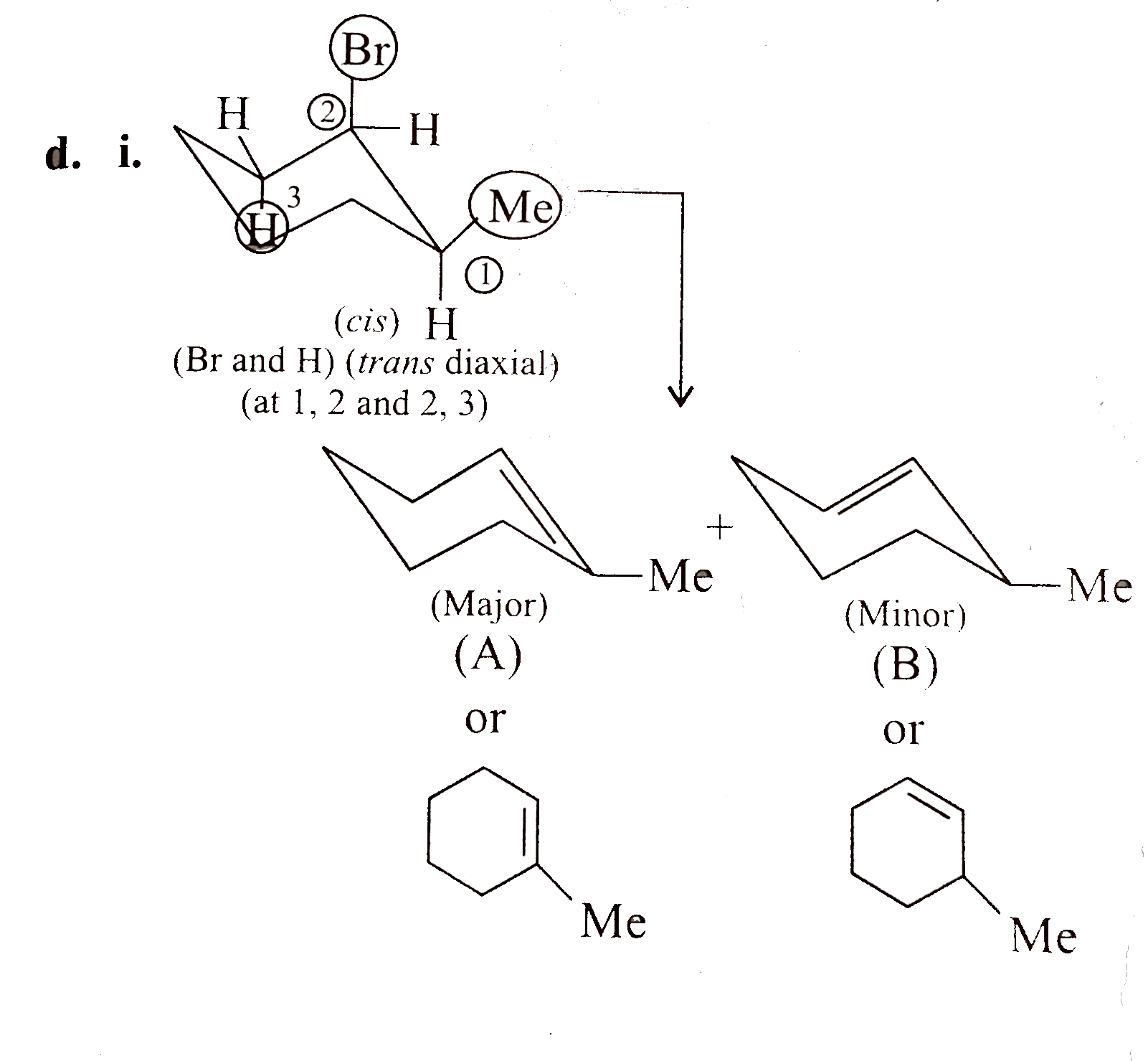
(ii) 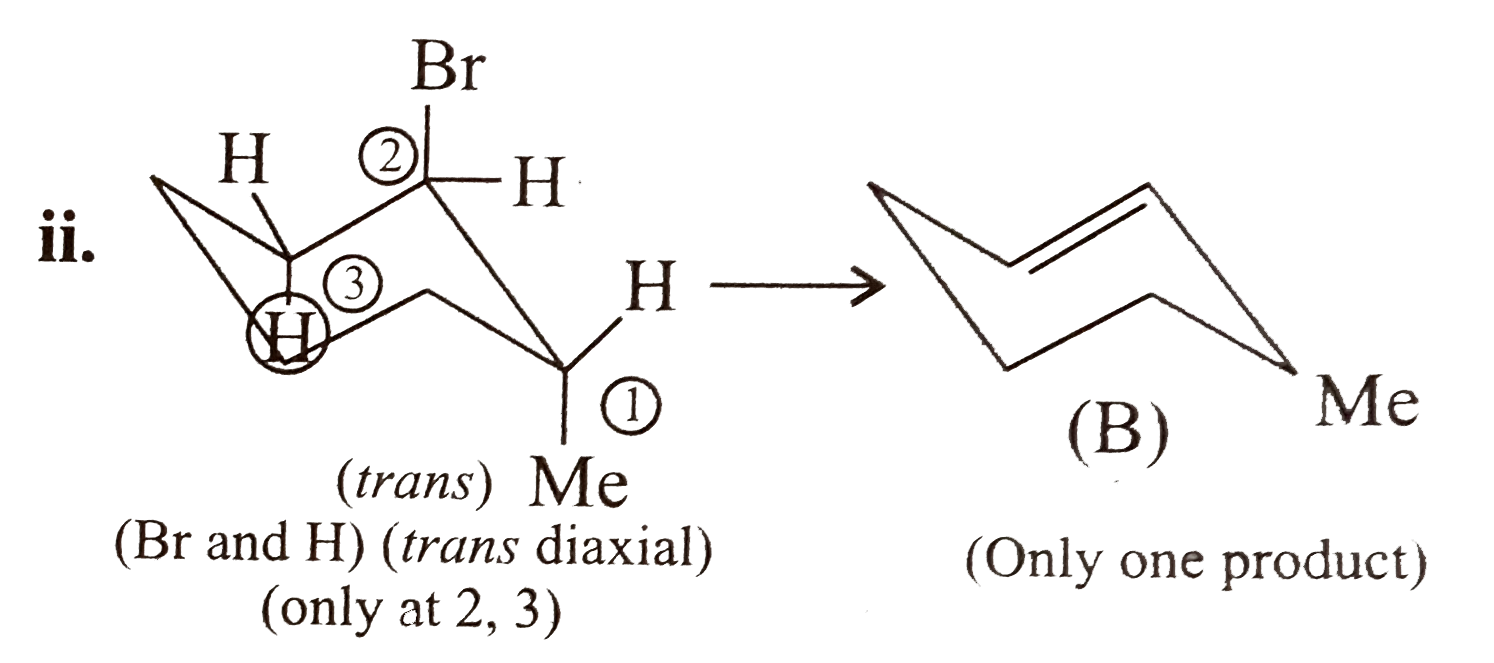 .
.
Topper's Solved these Questions
- ORGANIC REACTION MECHANISMBOOK - CENGAGE CHEMISTRYCHAPTER - ORGANIC REACTION MECHANISMEXERCISE - Solved Example
33 Videos
- ORGANIC REACTION MECHANISMBOOK - CENGAGE CHEMISTRYCHAPTER - ORGANIC REACTION MECHANISMEXERCISE - Subjective
19 Videos
- NCERT BASED EXERCISEBOOK - CENGAGE CHEMISTRYCHAPTER - NCERT BASED EXERCISEEXERCISE - Chemical Equilibrium
72 Videos
- P-BLOCK GROUP 13 - BORON FAMILYBOOK - CENGAGE CHEMISTRYCHAPTER - P-BLOCK GROUP 13 - BORON FAMILYEXERCISE - Exercise Archives (Subjecive)
9 Videos
Similar Questions
Give the structure of each of the products in the following reactions:
(i)
(ii)
View SolutionGive the product of the following reaction.
Me2C=CH2+IC1→?
View SolutionGive the majore and minor products of the following reactions.
a.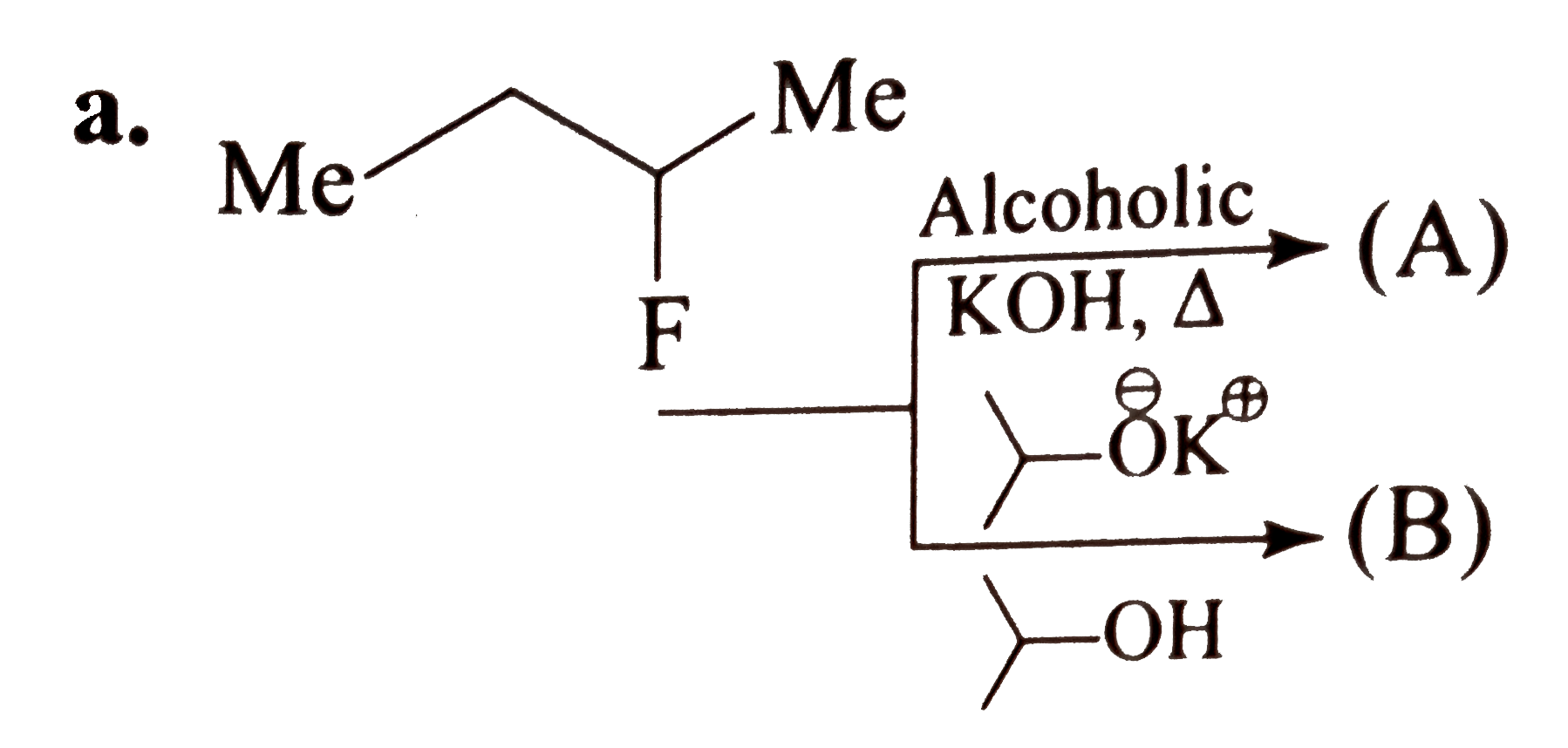
b.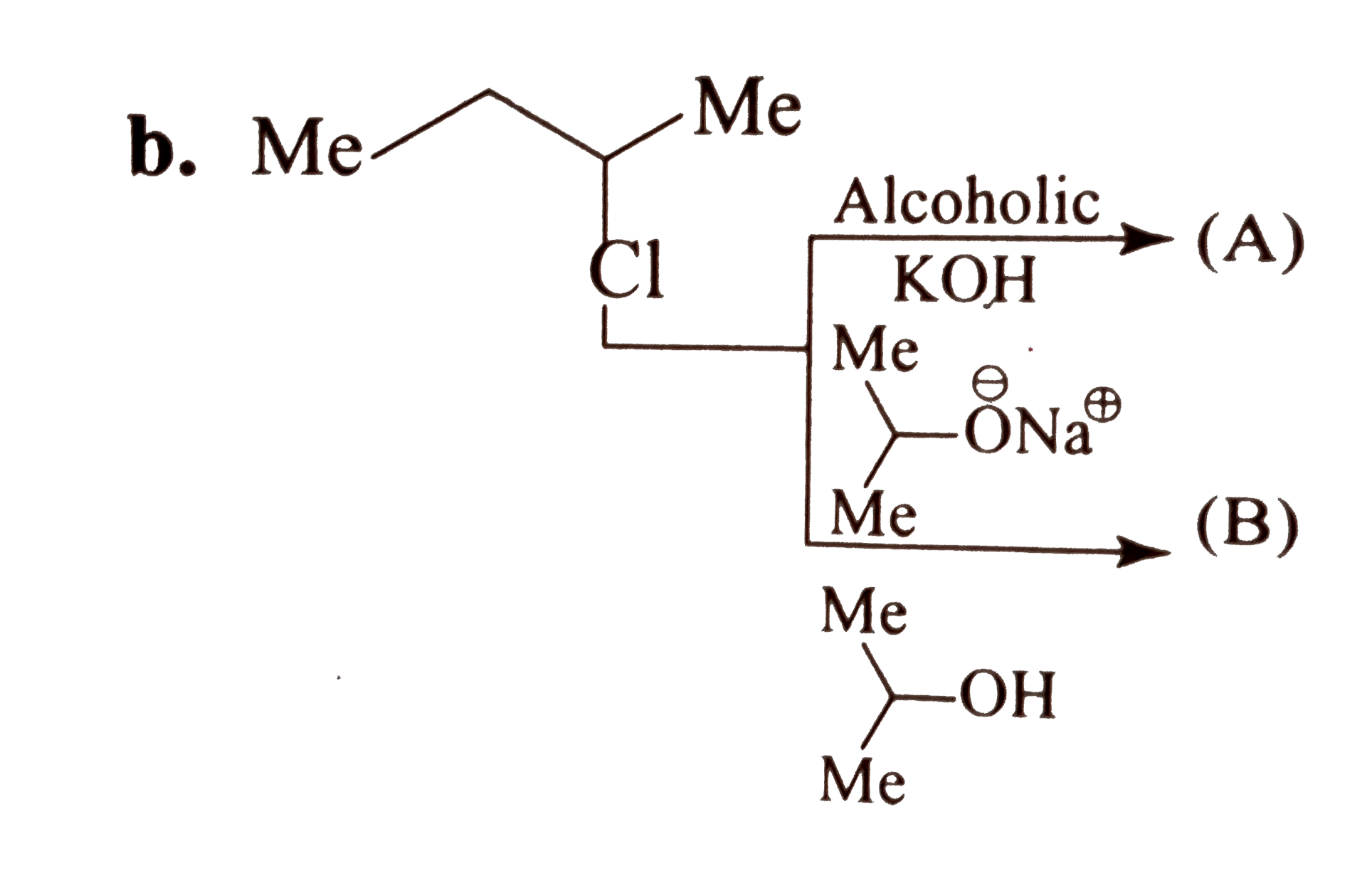
c.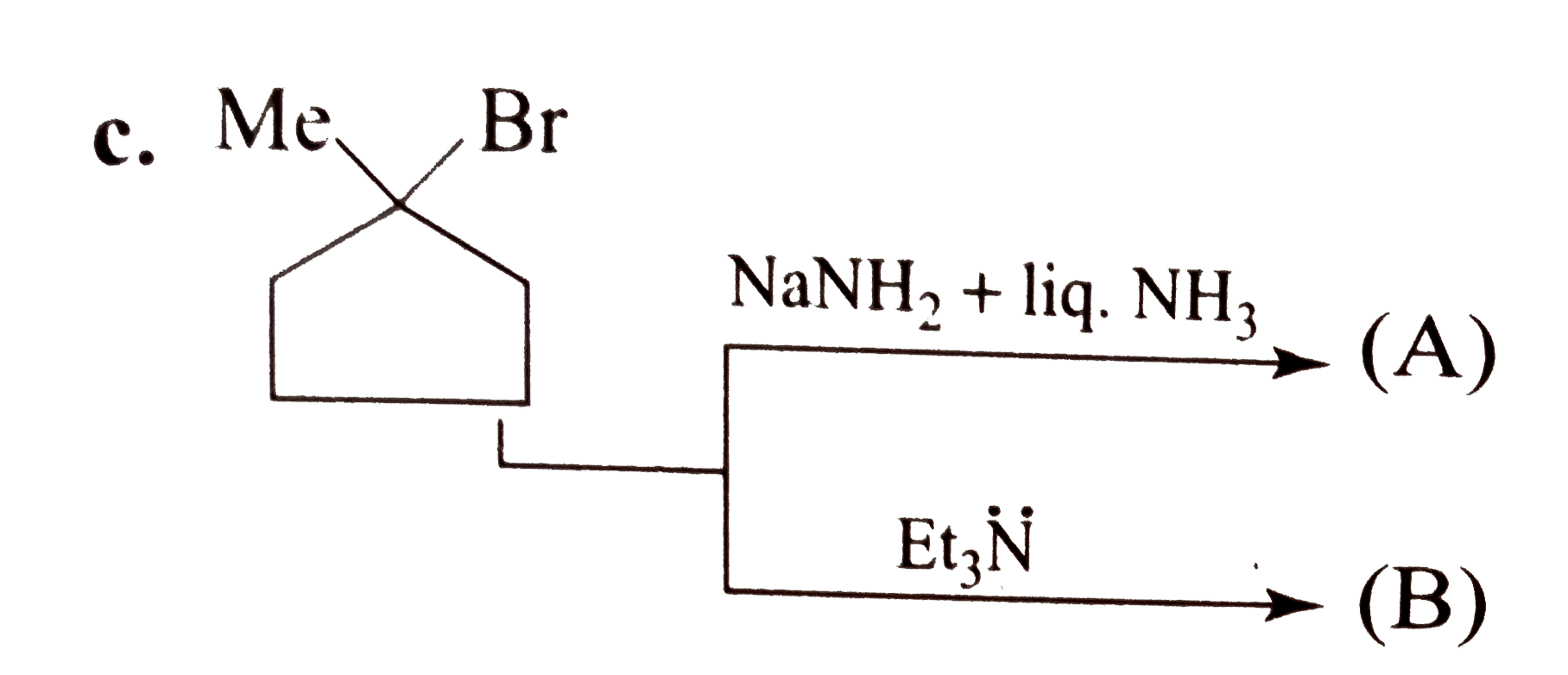
d.
e.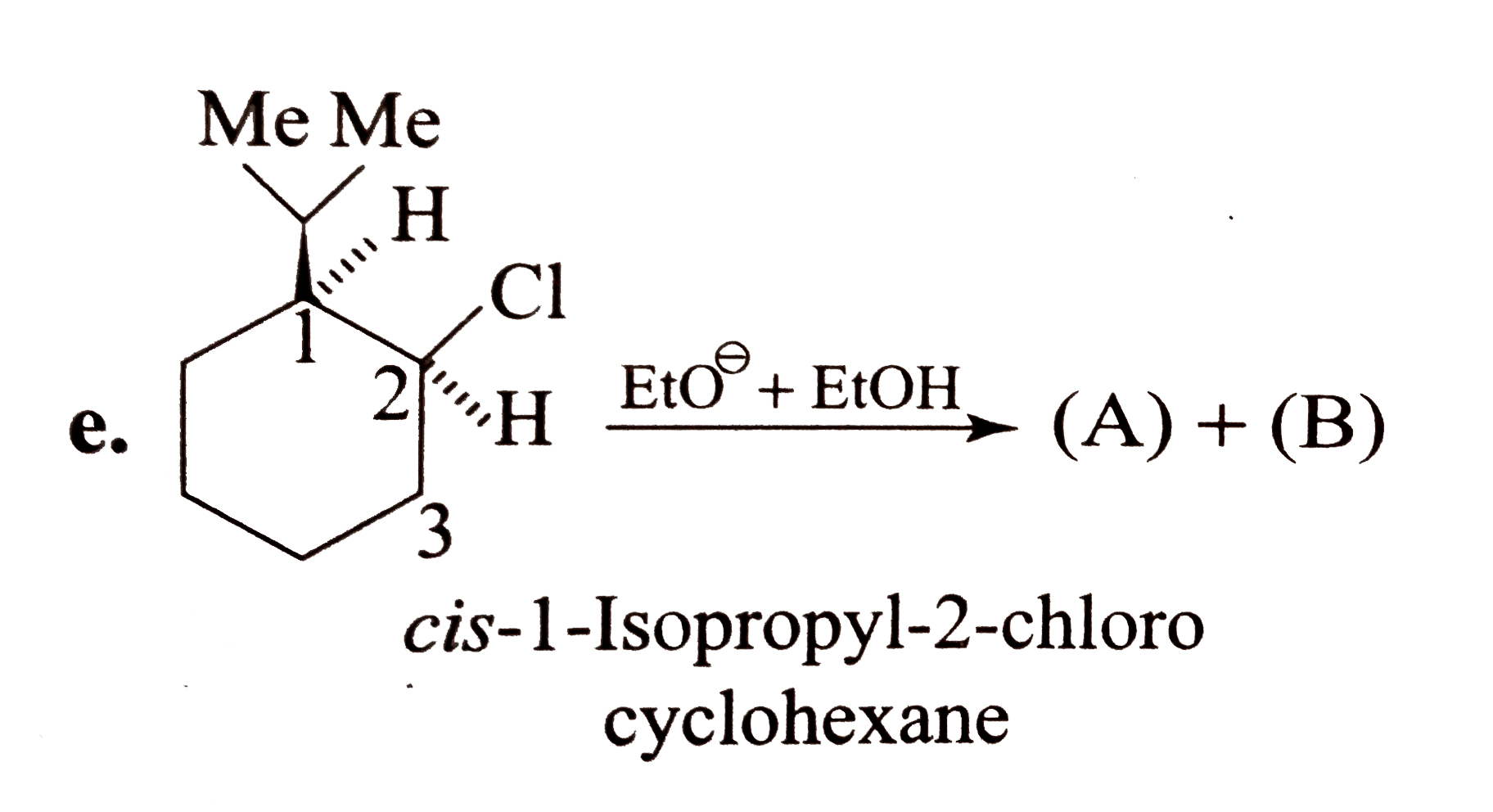
f.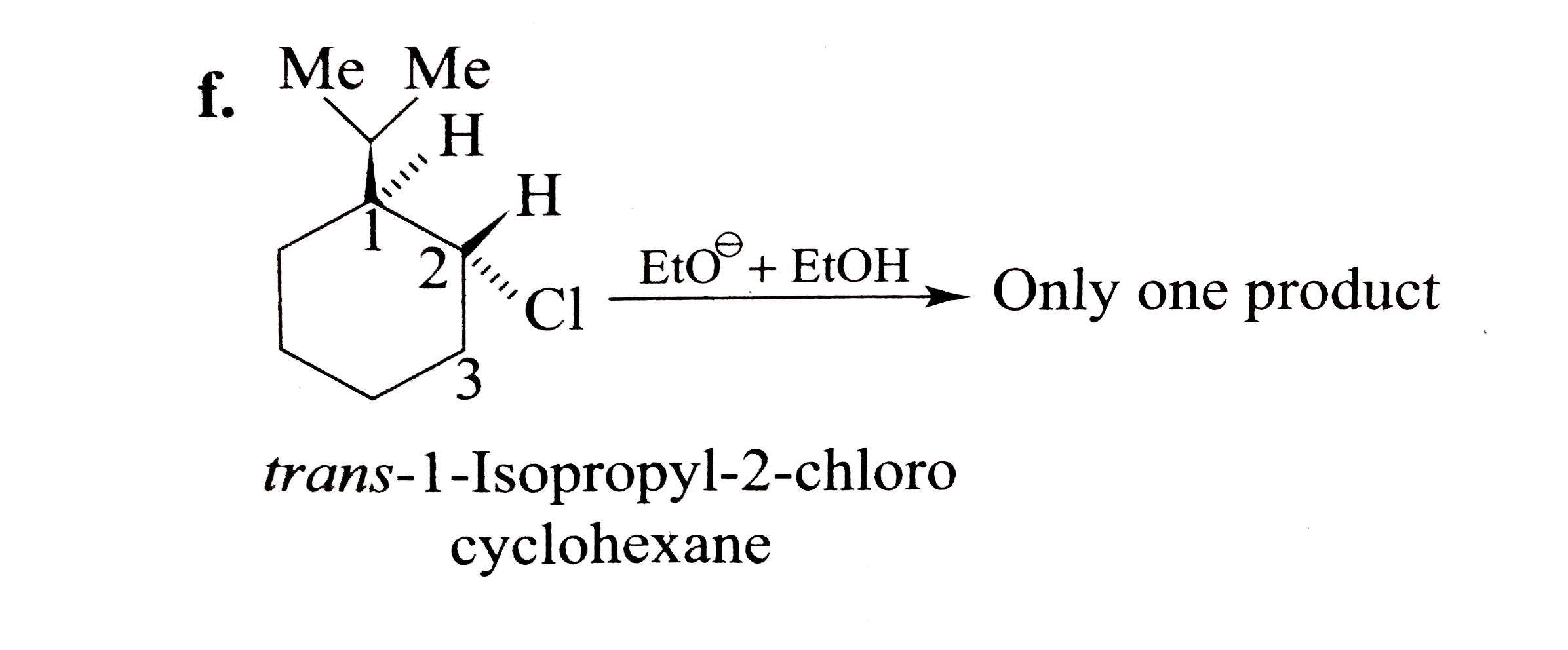
View SolutionWhat are the product A, B, C, D and E in the following reactions?
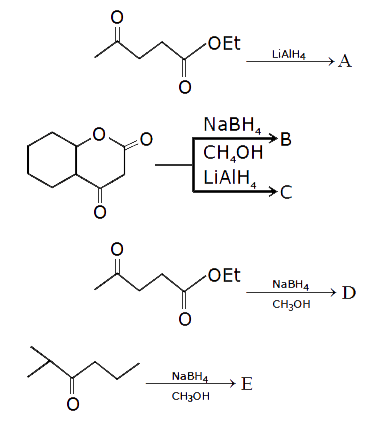
View SolutionGive the products of the reactions given below.
a.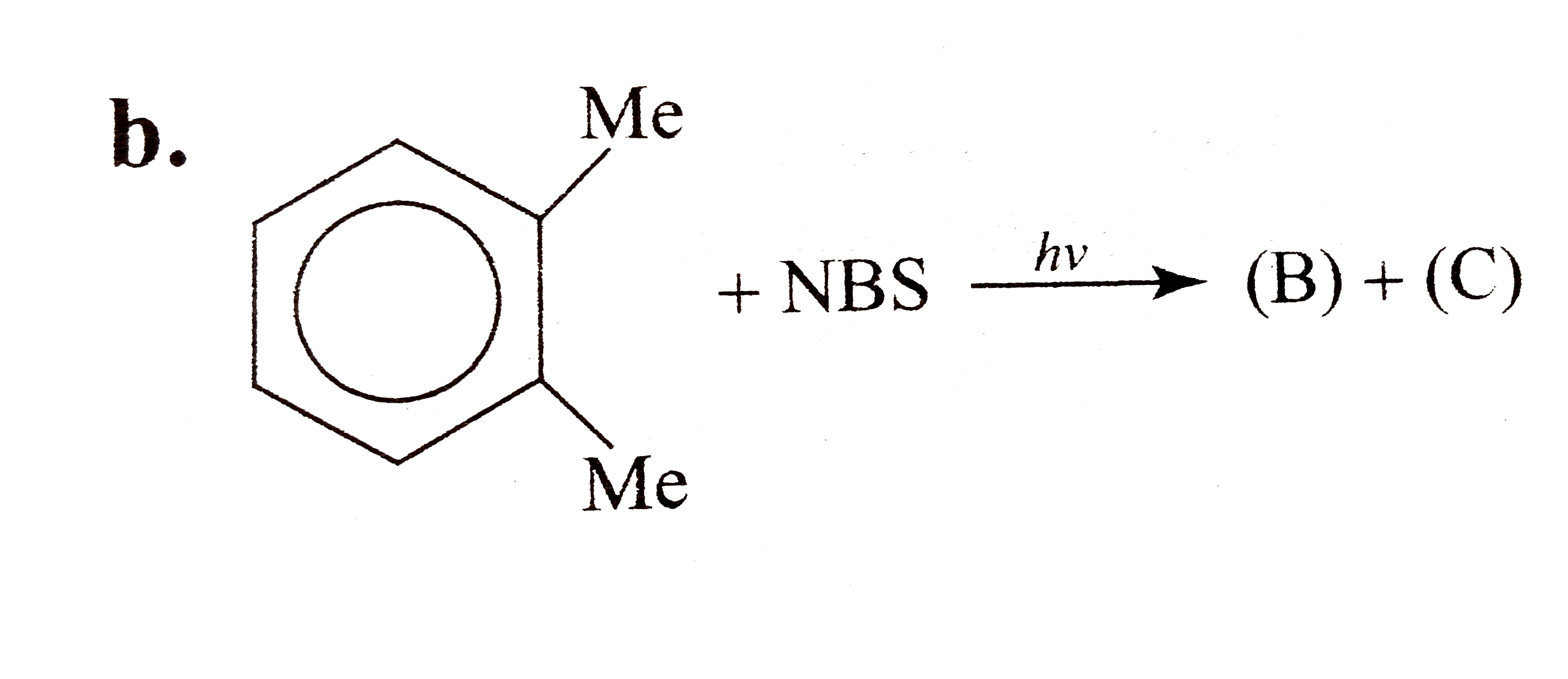
b.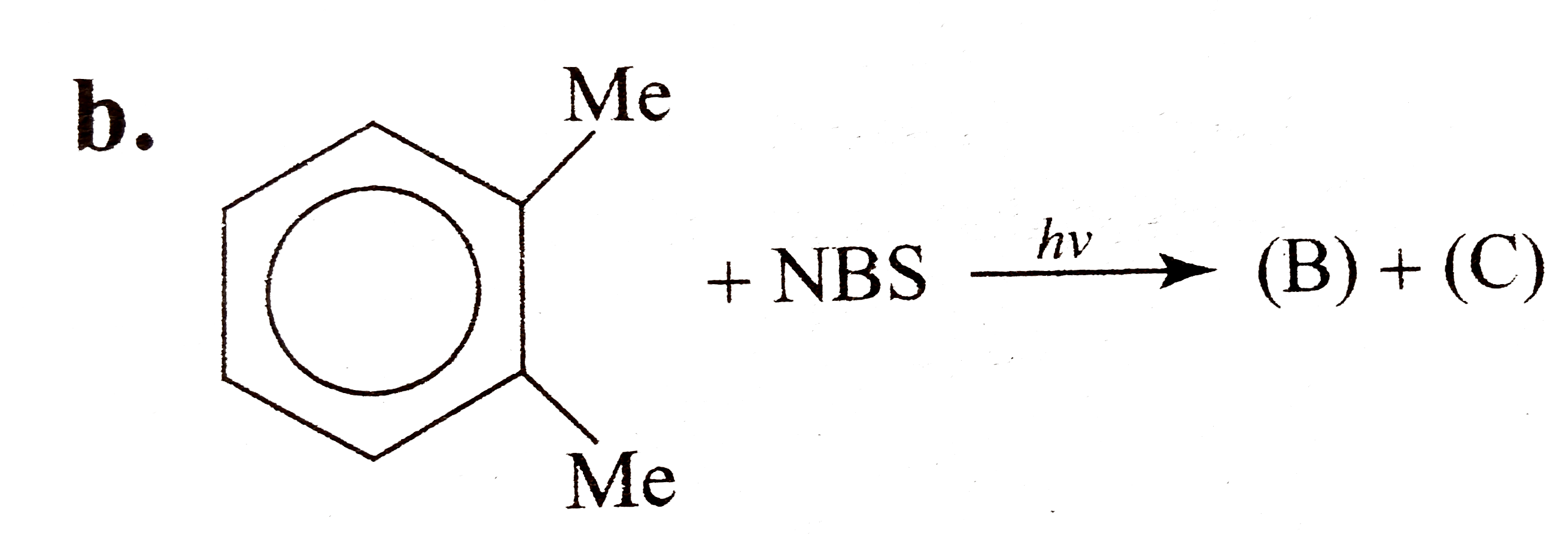
c.
d.
e.
f.
g. Three products
Three products
View SolutionFind out numbers of possible E1 products from following reaction .

View SolutionGive the product of the following reactions:
a.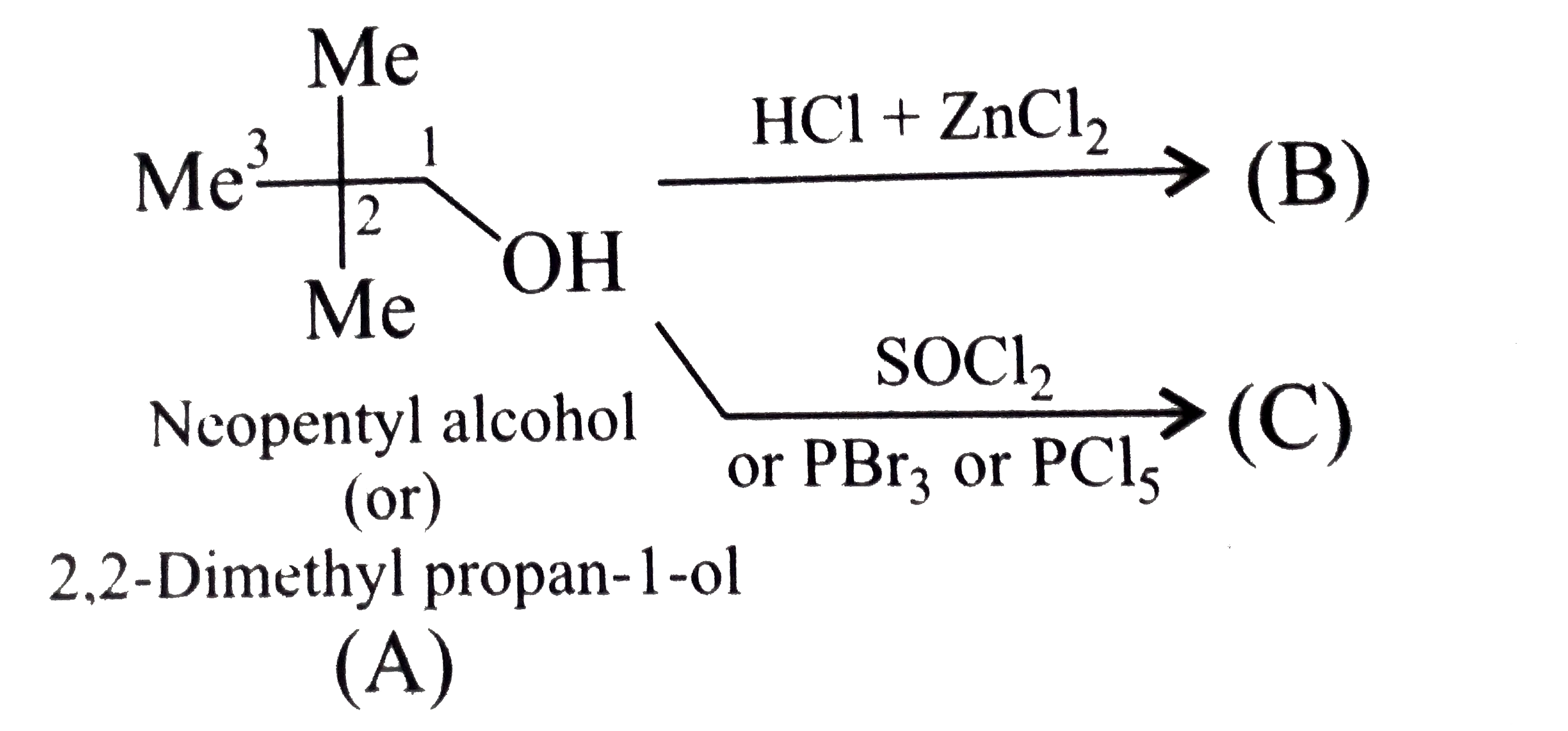
b. Given the stereochemical or rerranfged product of the following reaction.
i.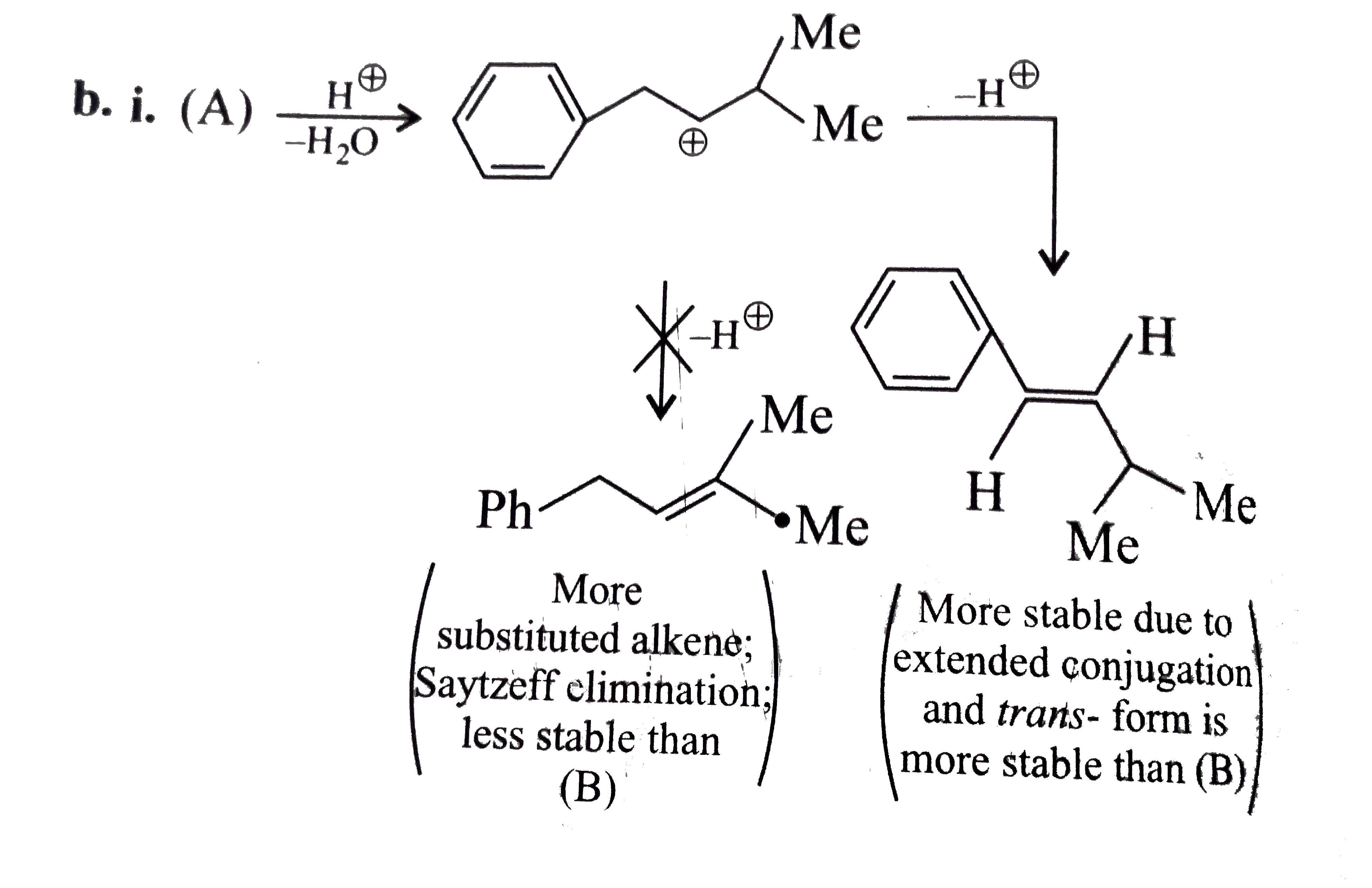
ii.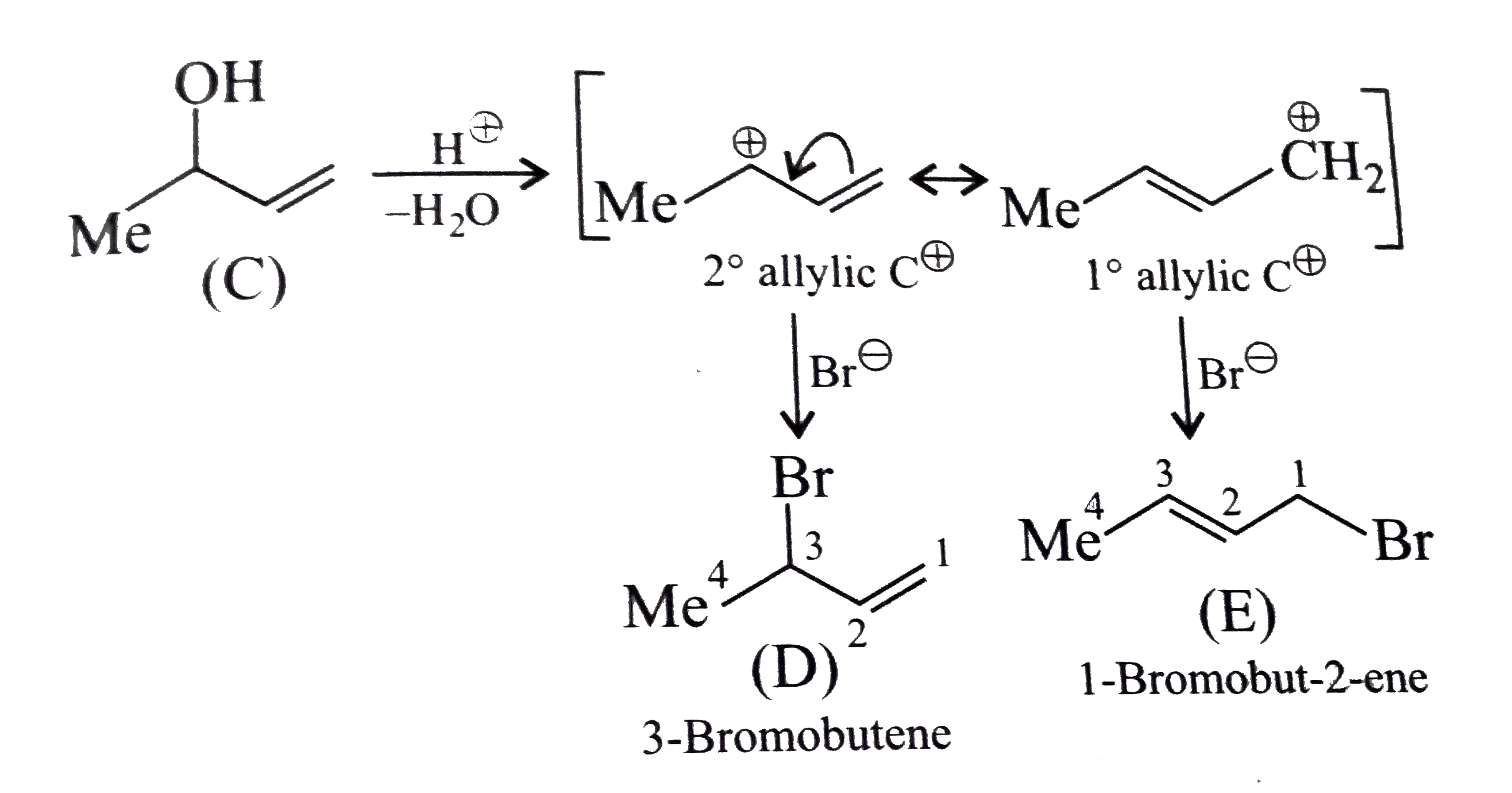
iii.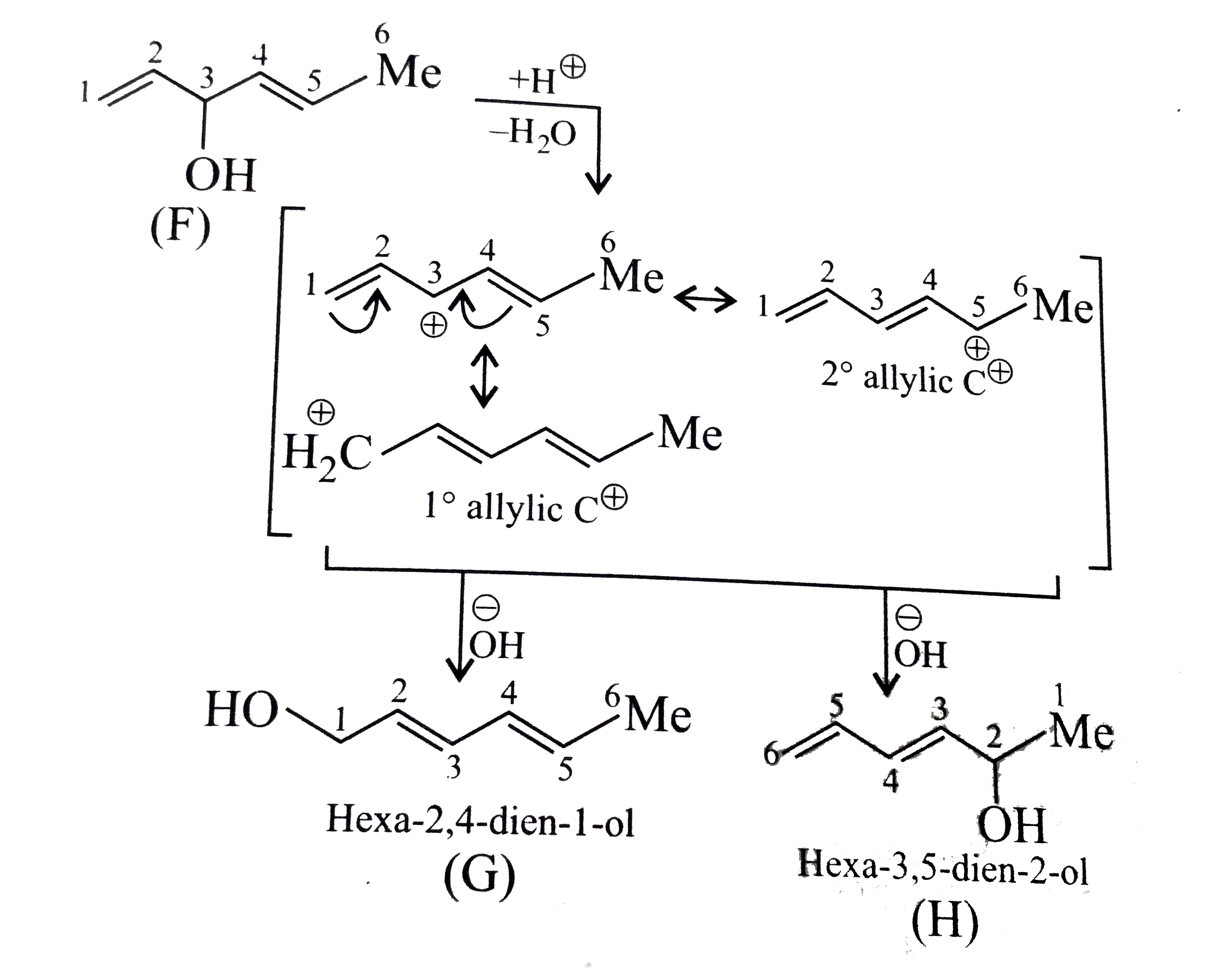
iv.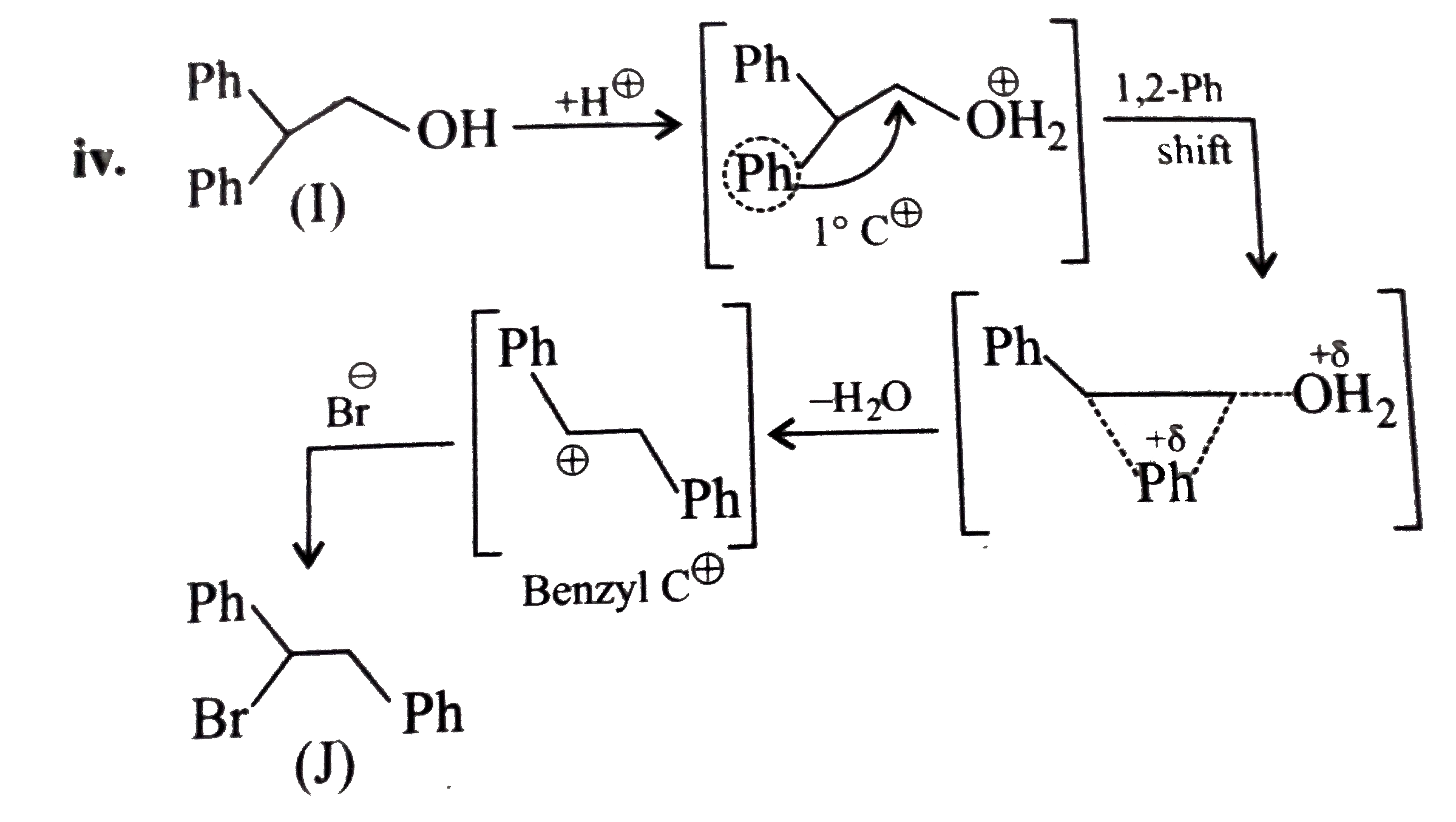
View SolutionGive the products of the reaction with conc. H2SO4 of :
a.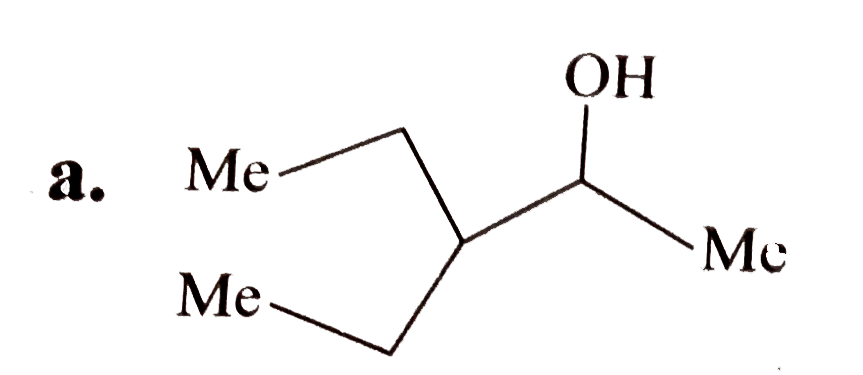
b.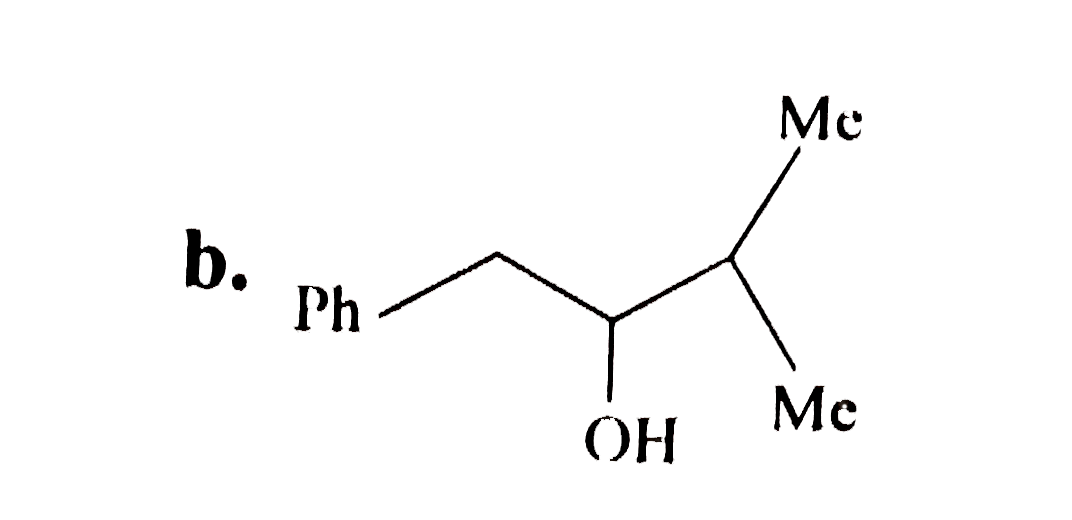
c.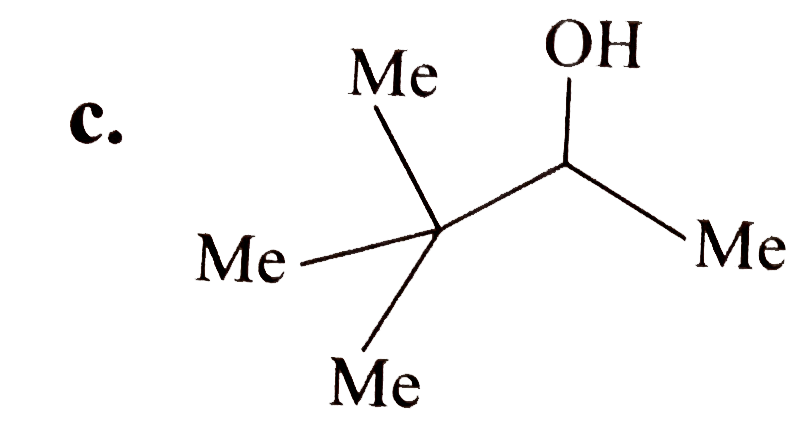
d. 1- Methyl cyclohexanol
View SolutionGive the product of each of the following reactions
Phthalic acid +NH3→D300∘C−−−→E
View Solution
(A) and (C) are isomers, (B) can be obtainedn by the products of the reactions of EtMgBr and acetone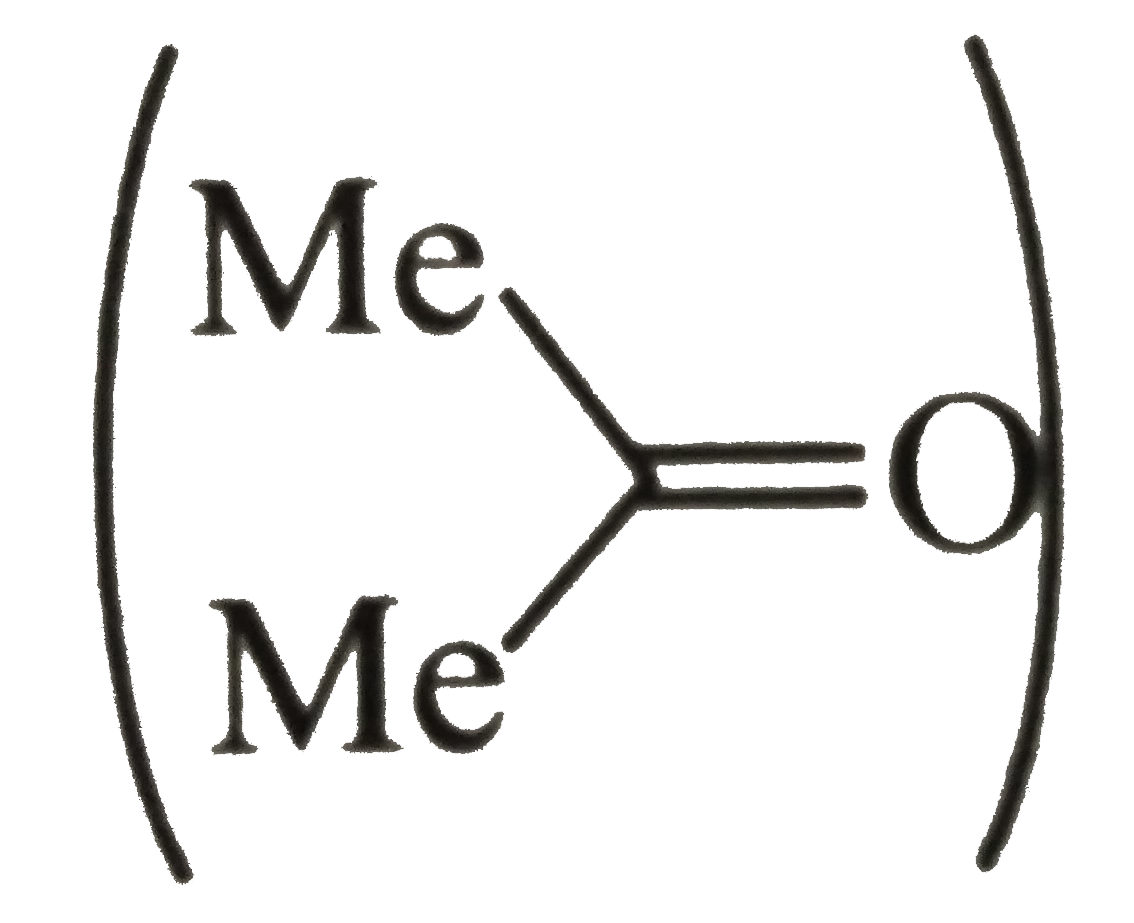 . Give the structures of (A),(B), and (C).
. Give the structures of (A),(B), and (C).
View Solution
